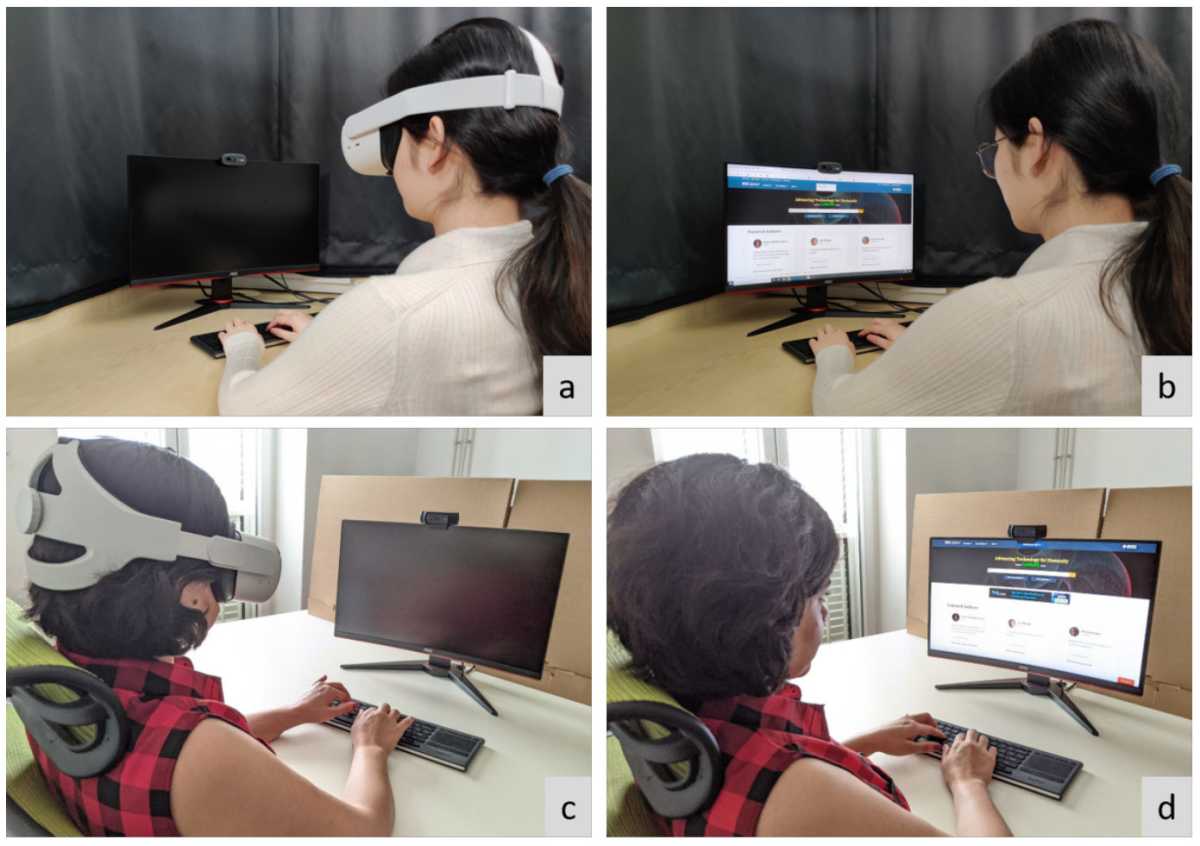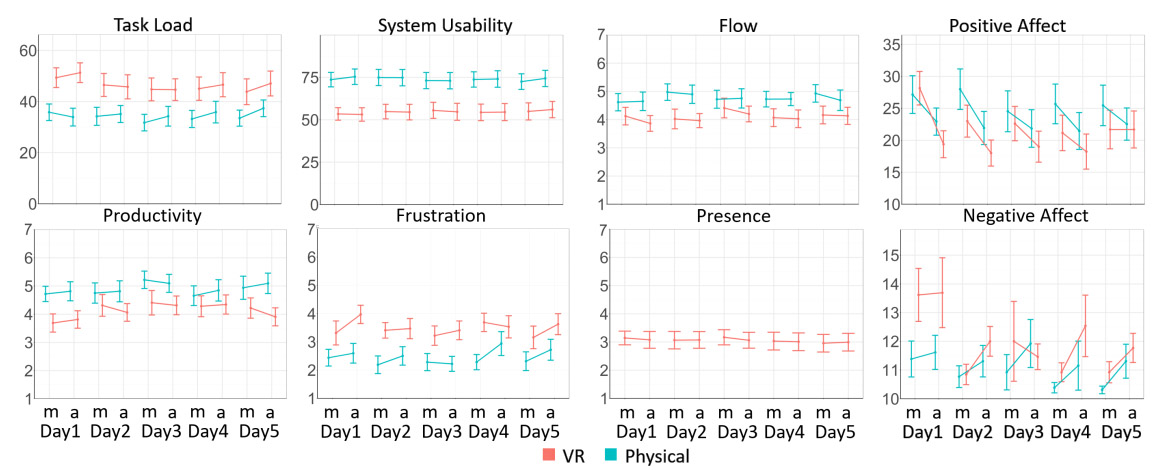Working in the Metaverse is going to suck, researchers confirm

 Image: Meta
Image: MetaFacebook billionaire Mark Zuckerberg believes in the Metaverse, a new paradigm for the web that has most people interacting with both content and other people in virtual reality. He believes in it so strongly that he created a new halo company and called it “Meta,” more or less erasing the Oculus brand. There’s just one problem: for most common applications beyond gaming or video consumption, VR is kind of ridiculous. A new research paper quantifies the idea that actually working in virtual reality is a bad idea.
A team of researchers at Coburg University, the University of Cambridge, the University of Primorska, and at Microsoft Research set up the largest- and longest-scale VR working experiment (PDF link) yet performed, with sixteen test subjects spending an entire 40-hour work week in VR. They used a typical commercially-available setup: a Meta Quest 2 headset (yes, the one made by Facebook) and a Logitech K830 keyboard with an integrated trackpad. As a baseline, the same subjects did the same work in a conventional PC environment (with the same keyboard/trackpad input) over another week. The study was spotted by PC Gamer.

Coburg University, Microsoft Research, University of Cambridge, University of Primorska
Coburg University, Microsoft Research, University of Cambridge, University of Primorska
Coburg University, Microsoft Research, University of Cambridge, University of Primorska
The results were, as the paper puts it, “expected.” The test subjects reported a 35% increase in work task load, 42% more frustration, 11% more anxiety, and a whopping 48% increase in eye strain. Participants rated their own productivity at 16% lower and their well-being at 20% lower. Two additional participants, one man and one woman, dropped out of the study on the first day, reporting that they were experiencing migraines, nausea, and anxiety. While some of these factors decreased with longer exposure to VR working environments, the researchers concluded that “VR resulted in significantly worse ratings across most measures.”
A few caveats. The researchers fully admit that their aim was to replicate a typical VR work setup as it’s available today, not an ideal one. The Meta Quest 2 is the best-selling head-mounted display on the market, but there are already VR headsets with better resolution and wider, more human-like fields of view. There are potential advantages to a VR environment, even when applied strictly to productive tasks. These include the ability to customize a user’s setup and see massive amounts of data beyond the limits of a physical screen.

Coburg University, Microsoft Research, University of Cambridge, University of Primorska
Coburg University, Microsoft Research, University of Cambridge, University of Primorska
Coburg University, Microsoft Research, University of Cambridge, University of Primorska
But the overall tone of the research paper is startlingly negative. With participants ranging from those with no experience in VR to those with extensive experience, the data sets nonetheless show a universal drop in both productivity and comfort with extended VR use. A significant portion of the test subjects — one in nine people, 11 percent — could not complete a single workday in VR before becoming physically unable to continue.
A scientist like the ones writing this paper would tell us not to draw conclusions from a single study. I’m not a scientist, but I don’t mind saying that the Meta and Metaverse vision of hundreds of millions of people working and living huge portions of their life in VR seems patently absurd, even accounting for improvements in both technology and comfort. VR gaming is something truly interesting and special, as Oculus demonstrated more than a decade ago. But VR working is something to dread.
Author: Michael Crider, Staff Writer

Michael is a former graphic designer who’s been building and tweaking desktop computers for longer than he cares to admit. His interests include folk music, football, science fiction, and salsa verde, in no particular order.
Recent stories by Michael Crider:
Sony is officially bringing its VR headset to PCMeta’s Quest 3 headset arrives on October 10SteamVR 2.0 beta adds tons of new features





